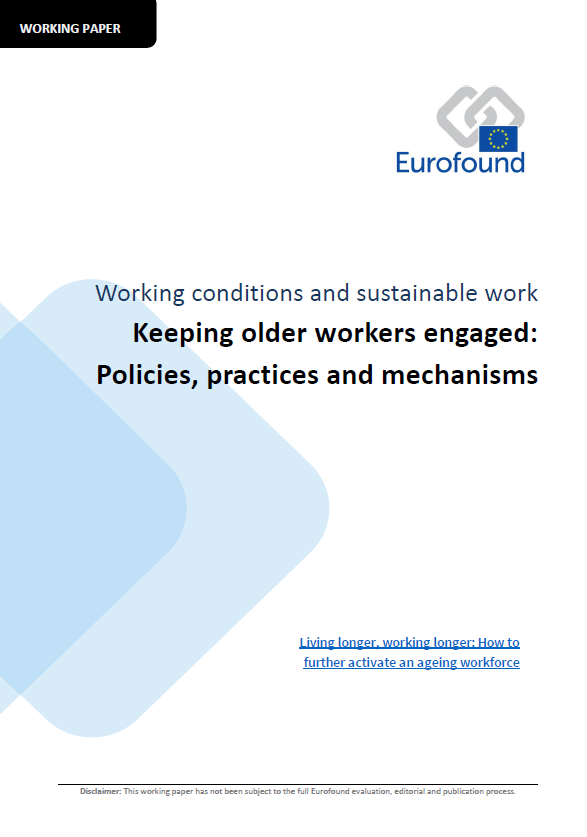Eurofound has a long history of expertise in issues facing the ageing workforce. Research since the 1990s has focused on labour market participation, job performance, working conditions and work preferences of older workers in the policy context of Europe's changing demographic profile. Work has also centred on public support and company-level initiatives fostering older workers’ employment. It has looked at older women workers, highlighting the increasing employment rates for this group and their increasing proportion of the workforce, especially in the 55–64 age group.
Survey data
Eurofound’s major surveys provide a range of data on the situation of older workers. The sixth European Working Conditions Survey (EWCS 2015) looks at how older workers compare across different dimensions of job quality. Although older workers are less likely to become unemployed than younger ones, data show that older workers feel that if they became unemployed, they would not find a similarly paid new job and would even find it difficult to re-enter the labour market. Using EWCS 2015 data, Eurofound has explored the factors influencing the working conditions of workers of different ages, as well as working conditions and worker's health.
A study based on Eurofound’s fifth European Working Conditions Survey (EWCS) looks at the characteristics of the older workforce and of work at different ages, as well as the factors that make work sustainable for an ageing workforce: good working conditions, physical and mental well-being, and work–life balance.
Eurofound’s European Quality of Life Survey (EQLS) offers age-related findings in relation to various dimensions of quality of life in Europe. An analysis of work preferences after 50 draws on findings from the EQLS 2012 and shows that many older workers prefer to work fewer hours even after taking into account their financial needs. Facilitating this closer alignment of working hours with preferences can enable and motivate people to work longer.
Longer working lives
Recently, Eurofound joined three other EU agencies in looking at age-friendly work in Europe, the policy challenges associated with the ageing workforce and innovative solutions.
Many workers are unable or not motivated to work until the statutory retirement age. However, there is also a group which is able and willing to work beyond it. Eurofound has investigated this increasing phenomenon of taking up work after retirement.
Recent research has focused on extending working lives through flexible retirement schemes, looking in particular at partial retirement schemes that can facilitate this. Mid-career reviews can also contribute to longer working lives. Research has examined how they can help to clarify workers’ options for remaining in work until a later retirement age. It highlights different instruments developed by companies to retain ageing workers.
Other research documents national and sectoral initiatives by governments and social partners to retain older workers in the labour market, including financial inducements and enhanced conditions. In an earlier project, age management initiatives introduced before and after the recession were analysed to highlight good practice in companies in Europe.
Resources
















